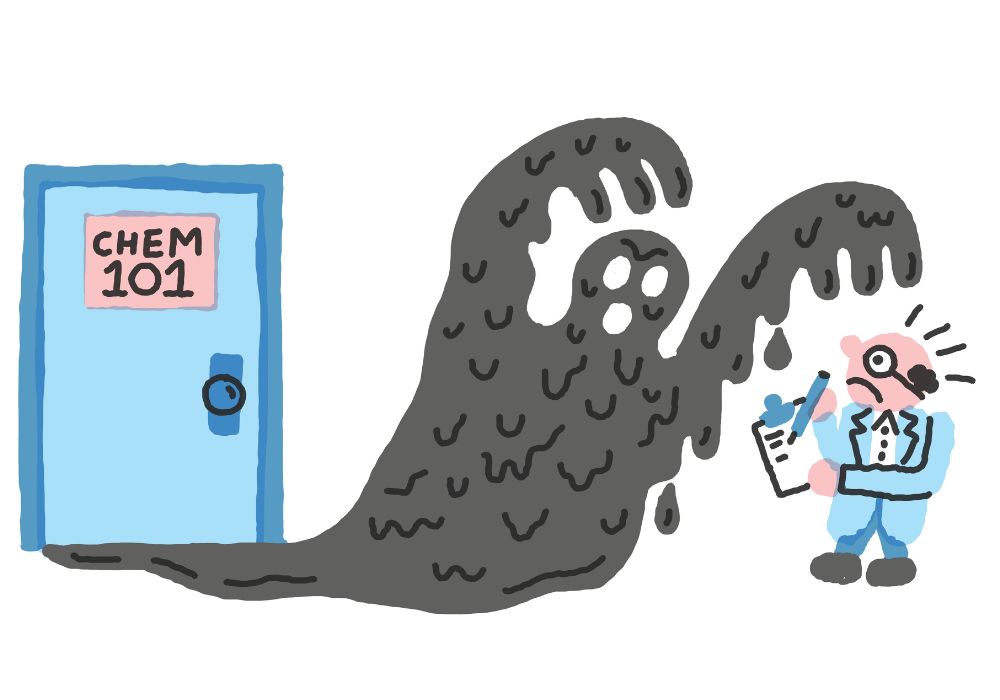It’s hard to remember today, but a few decades ago many conservatives were keen environmentalists. Consider Canadian prime minister Brian Mulroney, who marshalled the world community to fight acid rain and advocated for a global “law of the atmosphere.” U.S. president George H.W. Bush championed renewable fuels and strengthened the Clean Air Act. “Every city in America,” declared Bush the Elder, “should have clean air.”
How did the fossil fuel industry manage to raise a generation of climate change deniers? A research group has just identified a big component of that attitude shift: the fossil fuel industry’s decades-long campaign to bury the truth by cozying up to universities and discrediting climate science.
The researchers, from Canada, the United States and Ireland, just published the first comprehensive review of academic and private research into the oil industry’s attempts to stymie and stifle climate science. “In an era of widespread concern about corporatization and declining public funding of higher education, and a worsening climate crisis met by limited government action,” their report says, “fossil fuel companies have embedded themselves in universities across the U.S., U.K., Canada, Australia, and beyond.”
(By the way, that’s not just language bias at work here. The researchers note that these four nations lead the world in per capita carbon-dioxide emissions and rank among the countries most responsible “for holding back international climate negotiations.”)
The evidence indicates that the oil lobbyists fund research, sit on governing boards (especially at the University of Alberta), host recruitment events and seek opportunities to influence academic curricula. As Jennie Stephens, a study co-author who is a professor at Ireland’s Maynooth University, told the climate news service DeSmog, “When you pull it all together, you realize how pervasive a strategy this has been.”
A few examples of the sort of skullduggery the researchers collected: BP sponsors Princeton University’s Carbon Mitigation Initiative, which aims to “lead the way to a compelling and sustainable solution to the carbon and climate change problem.” A recent peer-reviewed article funded by the American Gas Association concluded that existing research “does not provide sufficient evidence regarding causal relationships between gas cooking or indoor nitrogen dioxide and asthma or wheeze,” despite growing research to the contrary. Oil firms helped develop climate programs at Oxford, Edinburgh and University College London. And two studies, in 2012 and 2022, found that fossil-fuel-funded research came to conclusions more favourable to the industry than did unsponsored research.
Particularly noteworthy was a 2018 study of energy giant Enbridge’s influence on the University of Calgary. Enbridge endowed the “Enbridge Centre for Corporate Sustainability” in the university’s business school, and the university’s then-president served on Enbridge’s board. CBC News found that Enbridge had the right to stop funding the centre at any time, sought influence over staffing and student awards, and negotiated opportunities for its executives and clients to meet university researchers. When UC faculty objected, administrators defended the company’s right “to use this investment as a way to make amends and possibly receive some positive PR.”
RELATED:
How student campaigners finally convinced NYU to divest from fossil fuels
How Big Oil’s spin doctors are influencing influencers
Are green conservatives the key to solving the climate crisis?
The researchers also surfaced confidential documents that prove that businesses work deliberately to alter academic outcomes. One study quoted a 1978 lobbying manual for industries under pressure: “Regulatory policy is increasingly made with the participation of experts, especially academics. A regulated firm or industry should be prepared whenever possible to co-opt these experts. This is most effectively done by identifying the leading experts in each relevant field and hiring them as consultants or advisors, or giving them research grants and the like.” A leaked 1998 memo from the American Petroleum Institute advised its members to “build a case against precipitous action on climate change” by establishing “cooperative relationships with all major scientists whose research in this field supports our position.”
Worst of all, the paper says that many researchers over the years have asked universities to release data on private sponsorship of their energy-related research centres. Nearly all refused, hindering attempts to track these conflicts of interest.
These trends are particularly troubling given universities’ key role in studying complex societal challenges in the public interest. If universities, with their tenured professors and idealistic grad students, aren’t holding industry’s feet to the fire, who will?
To overcome these problems, the authors urge scholars to “engage urgently” in research into the prevalence of fossil fuel–university partnerships and the consequences of such partnerships. And they call on universities around the world to fully disclose their financial and contractual ties with fossil fuel companies. The authors say that “it is critical to better understand how pervasive industry involvement is in higher education, and how it is changing over time.”







